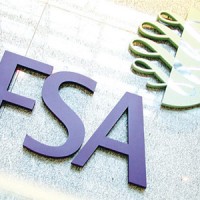
It said: “From 2004 until the latter part of 2007 the FSA was not so much the dog that did not bark as a dog barking up the wrong tree.”
The Parliamentary Commission on Banking Standards’ uncompromisingly titled – Fourth Report ‘An accident waiting to happen’: The failure of HBOS said the regulator was guilty of ‘supervisory neglect’ of asset quality.
Despite raising concerns about HBOS’ control framework failing to keep pace with asset growth and sub-standard risk functions before 2004 the regulator failed to keep up the pressure, despite increasing its capital requirement from 0.5% to 9.5% in 2003.
It said: “From the evidence we have gathered on the subsequent phase of FSA regulation, it is all too apparent that the FSA switched its focus from late 2004 away from the prudential risks inherent in the Group’s business model to two other regulatory preoccupations-implementation of Basel II and the FSA’s Treating Customers Fairly (TCF) initiative.”
In the swingeing, damning report, it added: “The FSA’s attempts to raise concerns on these other fronts from late 2007 onwards proved to be a case of too little, too late.”
The report concluded on the regulator: “The FSA failed to follow through on these concerns and was too easily satisfied that they had been resolved. The FSA took too much comfort from reports prepared by third parties whose interests were not aligned with [its own],” it said.
However, ultimately the MPs behind the report blamed the three top bosses, HBOS’ first chief executive Sir James Crosby, his successor Andy Hornby and chairman Lord Stevenson for the bank’s failure.
The comprehensive and frequently hair-raising report also blamed HBOS’ absence of group risk controls and the bank’s working culture alongside the individual bosses themselves, many of which remain “deluded” to this day over the reasons the bank failed.
It added that banking staff compounded problems with a “cultural indisposition to challenge.”
At its peak in 2007, HBOS had a market capitalisation of over £40 bn and former HBOS shareholders have seen 96% of its peak value disappear.
The taxpayer has injected £8.5 bn directly into HBOS, where Lloyds Banking Group (LBG) provided a further £20.5bn for HBOS and itself also received £12bn from the taxpayer.
The report added: “There have also been wider effects of the catastrophe, with HBOS weakened in its ability to lend to retail customers and small- and medium-sized enterprises (SMEs) and the banking market [remains] less diverse.”
This report is expected to inform the agenda and final conclusions of two further reports from the FSA and the Treasury Committee on HBOS, which will produce supervisory strategy for new regulator, the FCA.
The Committee of MPs behind the report employed unusual tactics, including appointing counsel to examine witnesses, gathering confidential documents and interviewing witnesses anonymously, including one from the FSA itself.















